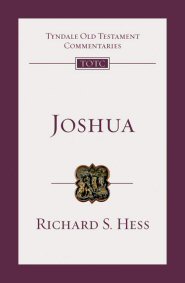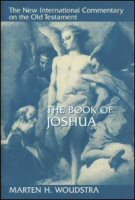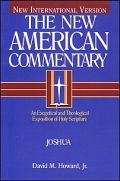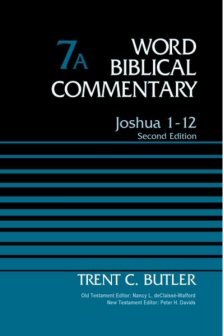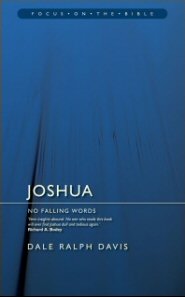Best Resources on Joshua
Joshua is about bravery, rooted in faith in Yahweh. The book of Joshua takes place just after the death of Moses, Israel’s longtime leader. It begins with God commissioning Moses’ successor, Joshua, to lead the Israelites across the Jordan River to take possession of the land that had long ago been promised to their forefather Abraham (Josh 1:1–5; compare Gen 17:8). In the narrative, the Israelites engage in a military campaign against the nations that already live in the promised land, Canaan. Eventually, through God’s intervention, they settle the land and allot territories to their 12 tribes (Josh 14:1–5). The narrative does not merely recount the events of the conquest of Canaan; it also interprets these events theologically. At the end of the book, Joshua charges Israel to choose Yahweh as their God, and the Israelites symbolically renew their covenant with Yahweh.
—Faithlife Study Bible, Lexham Press
Everything You Need to Study & Teach Joshua
Expository Preaching Kits are curated resources all focused on helping you teach a single book of the Bible—keeping you prepared without weighing you down.
Best Commentaries on Joshua
Richard S. Hess, Tyndale Old Testament Commentaries (TOTC), InterVarsity Press, 1996, 352 pp.
The book of Joshua memorializes a transitional episode in Israel's national history. The heroic figure Joshua leads the new generation of Israel across the Jordan and into the land of promise, conquering Canaanites and overseeing the allotment of the inheritance among the tribes. However, the book of Joshua is foremost a story of God, who works powerfully on behalf of Israel and Joshua, fulfilling his covenant promises. In the final chapter, it is God who receives Israel's worshipful recommitment at Shechem. Richard S. Hess explores the historical, theological, and literary dimensions of the book of Joshua and presents evidence for placing the events of Joshua in the late second millennium BC.
- Level: Basic
- Type: Devotional
Marten H. Woudstra, New International Commentary on the Old Testament (NICOT), Eerdmans, 1981, 410 pp.
Recognizing that Old Testament studies today are in a state of flux as never before and that the book of Joshua seems to be at the crossroads of this animated discussion, Marten Woudstra takes into careful account the various views represented by recent scholarship as well as Hebrew usage and text-critical concerns. Woudstra demonstrates that the central theme in Joshua, to which everything in the book has been made subordinate, is the fulfillment of God’s promise to the patriarchs regarding the promised land. To support his understanding of this central theme, Woudstra emphasizes the nature of the Hebrew narrative as both proleptic, offering provisional summaries of events to be taken up later in considerable detail, and programmatic, indicating the book was written close to actual events. An extensive bibliography and seven instructive maps supplement the excellent introduction and section-by-section commentary.
- Level: Intermediate
- Type: Expository
David M. Howard, New American Commentary (NAC), B&H, 1998, 449 pp.
The book of Joshua forms the logical end point for much of the Pentateuch. It shows how Israel came to possess the land God had promised centuries before to Abraham, and how God was faithful to his promises. It also portrays God’s demands that his covenant people forsake all other allegiances and follow him only and completely.
- Level: Intermediate
- Type: Expository
Trent C. Butler, Word Biblical Commentary (WBC), Thomas Nelson, 2014, 944 pp.
This updated and revised edition of Trent C. Butler’s commentary on Joshua features solid biblical scholarship, thorough coverage of the original Hebrew, and close analysis of the ancient manuscripts of Joshua. It includes Butler’s translation of the text, explanatory notes, and commentary to help any professor, student, or pastor with research and writing.
- Level: Advanced
- Type: Technical
Dale Ralph Davis, Focus on the Bible, Christian Focus, 2000, 208 pp.
This exposition is rooted first in a thorough analysis of the Hebrew text, employing helpful insights from archaeology and linguistics, and second in the major theological and literary themes discovered in each section. Finally, the author brings the fragments together in an expository treatment that addresses the important topics of application.
- Level: Intermediate
- Type: Expository
Best Books on Joshua
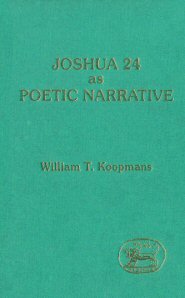
Joshua 24 as Poetic Narrative
Joshua 24 as Poetic Narrative presents the different methods we use to interpret two basic issues in Joshua 24. First, Koopmans explores the diachronical composition of the text and the role that Joshua 24 plays in the covenant concept of the Old Testament. Then, he discusses the covenant concept and its significance and covers the extensive developments related to it in the book of Joshua.
Learn more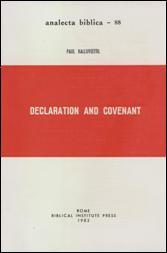
Declaration and Covenant
Declaration and Covenant is a fascinating examination of covenant formulae from the Old Testament and the ancient Near East. This study shows how covenant partners sometimes created their connection by an oral declaration, like the formula: “I am yours, you are mine.” This oral declaration could affect the original covenantal union, or it could reaffirm the existing bond or reestablish a broken pact.
Learn more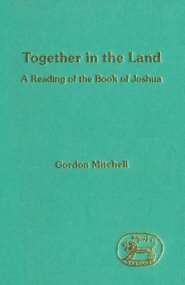
Together in the Land
The book of Joshua is well known for its tales of slaughter and destruction. Together in the Land shows that ambiguity created using juxtaposing contrasting ideas is a feature of the compositional arrangement in Joshua. While there may be a dreamland emptied of foreigners awaiting Israelite occupation, there is also a grudging acceptance of coexistence in the land with a certain class of foreigner—represented by exceptional outsiders like Rahab and the Gibeonites. Mitchell concludes that such ways of dealing with reality were a feature of the disillusionment and hope of post-exilic Judaism.
Learn more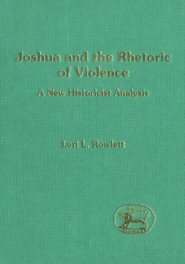
Joshua and the Rhetoric of Violence
Joshua and the Rhetoric of Violence examines the book of Joshua as a construction of national identity. This pioneering New Historicist analysis shows how the Deuteronomist used war oracle language and epic historical lore to negotiate sociopolitical boundaries. It asserts that text and context interacted in a program consolidating King Josiah’s authority in the wake of Assyrian imperial collapse. The book argues that the conquest narrative is not straightforward “us against them” propaganda but a complex web of negotiations defining identity and otherness. The analysis draws on Foucault’s principle that power is something exercised rather than merely possessed.
Learn more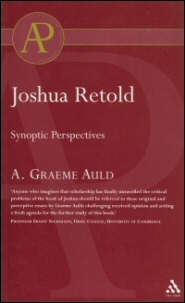
Joshua Retold: Synoptic Perspectives
In this groundbreaking study of this important yet sometimes puzzling biblical book, Professor Auld considers the varied witnesses to its ancient text; the meaning of particular words or names; the connections between Joshua and other books of the Bible, especially Judges, Kings and Chronicles; and the history of the interpretation of Joshua from earliest to most recent times.
Learn moreBest Courses on Joshua
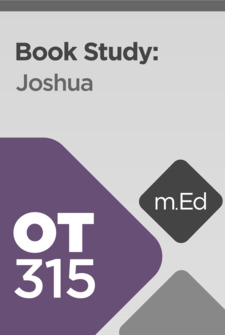
Mobile Ed: OT315 Book Study: Joshua (12 hour course)
Explore the book of Joshua with Dr. L. Daniel Hawk. As Dr. Hawk surveys the book, he highlights the artistry of the narrative in the telling of the story of Israel’s conquest of Canaan. You’ll explore the characters and themes of the book and gain an appreciation for biblical narrative in general. As you study the history described in Joshua, you will discover how it speaks the truth about God and what we can learn from it about who we are as God’s people and how we are to live in the world today.
Learn more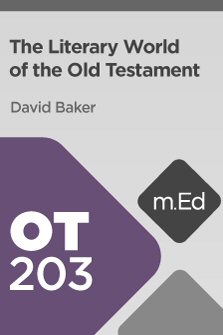
Mobile Ed: OT203 Literary World of the Old Testament (6 hour course)
Join David W. Baker on a whirlwind tour to explore the Old Testament from many different angles and how it relates to ancient Near Eastern literature. From creation accounts and stories of destruction to Wisdom Literature, discover different biblical literary genres that have parallels in ancient Near Eastern literature. Explore extrabiblical historical texts that mention key events and figures from the Old Testament. Understand how Israel fits into and is impacted by its ancient Near Eastern environment but also how it is separate and unique, mainly on a theological level but also by its distinct worldview.
Learn more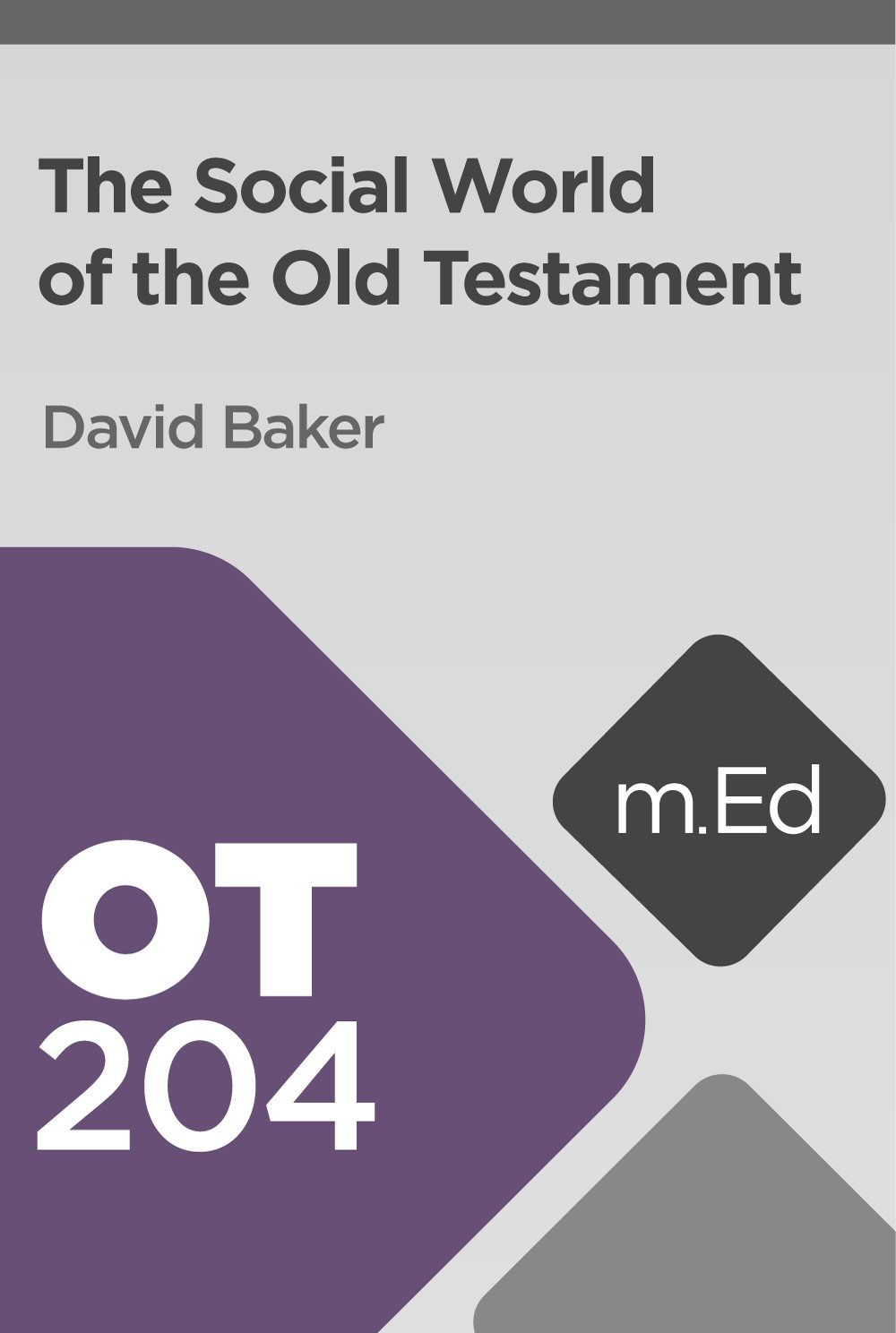
Mobile Ed: OT204 Social World of the Old Testament (4 hour course)
In an age of international travel and migration, we’re familiar with people who look, sound, eat, and believe differently than we do. To become friends, it’s helpful to understand where they come from and how they do things differently, or the same, as we do. In the same way it is necessary to understand someone who comes from a different place than we do, how much more necessary is it to understand someone who is from not only a different geographical place but also a different time than we are? The Old Testament starts at the beginning of the world. This course will undertake the task of crossing the bridges of geography, climate, time, and a landscape unknown to us: ancient Israel. Throughout the course, David W. Baker will address aspects of life from our own culture and time, as well as family structure and societal systems from ancient Israelite life. As you learn more about the social world of the Old Testament, you will be struck not only by our differences but also our common humanity and that we share the same dreams, hopes, and fears as they did.
Learn more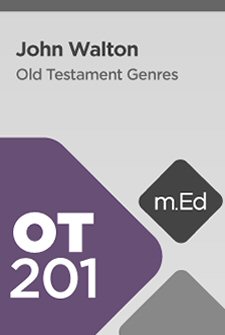
Mobile Ed: OT201 Old Testament Genres (4 hour course)
Dr. John Walton guides students through the types of literature in the Old Testament. Beginning with narrative and continuing through prophecy, apocalyptic literature, wisdom literature, and the Psalms, this course explains how to read and understand the Old Testament effectively. Students should walk away with a strong interpretive framework through which they can grapple with the Old Testament. The course guides students into asking broader questions about the overall purpose of the Old Testament and God’s revelations throughout it.
Learn more